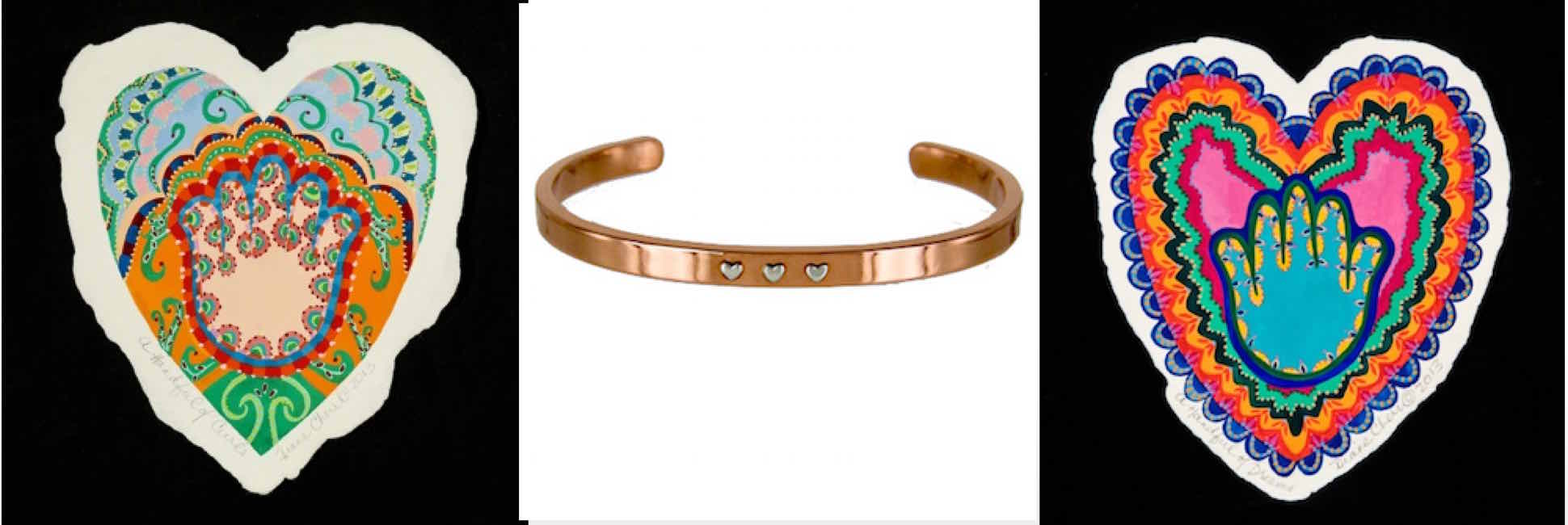Fair Trade, Ethical Sourcing & February 14th….Celebrating Love while Helping the World Around You
The “Kosher” Way of Buying Goods By Karen Akst SchecterWhy do we focus on ethical sourcing and knowing the origin and stories behind our Judaica and other goods? For two different yet complementary reasons.
First, our passion for social justice: “Tzedek Tzedek Tirdof – Thou shall surely seek justice” is a core Jewish value. When we decided to open the Aesthetic Sense: Goods for the Soul, we drew from many life lessons, and felt strongly the need to give voice to those who are most in need of defenders and advocates. We know that we are but a small part of a larger community, whether it be the Jewish community, the Mount Kisco community, or the global community. Inevitably, this brought us to one of Hillel’s most famous teachings: “If I am not for myself, who will be for me? If I am not for others, what am I? And if not now, when?” These teachings in turn led us to make a commitment:
Our business would not only be about profits. It also would be about justice, fairness and compassion.
Second, we believe that ethical sourcing equates with holiness. In an article published in Tablet Magazine, David Zvi Kalman posits that being aware of the source of a ritual object means “being aware of the fragility of holiness, of our power to choose not only which history to prioritize but to add ourselves to that very history, imbuing those objects with memories of our own.”
As a practical matter, how does this translate?
In our mind, there is no more relevant time to make certain that goods are ethically sourced than when one buys Judaica or other spiritual goods. Think about this: one wraps oneself in a tallit, a prayer shawl, to create a holy space. Do you want to store that tallit in a bag made in a factory with no safety regulations, using child labor, and not paying a living wage, or would you prefer to use a fair trade tallit bag or one made by an individual artist whose story you know? Or consider Chanukah, commemorating the fight of the Jewish people to achieve religious freedom. Wouldn’t it be wonderful to honor that reaffirmation of both freedom and the spiritual quest with a menorah whose purchase supports an artisan struggling with the burden of poverty? Or by playing the dreidel game with a dreidel made by a Peruvian artisan from a tagua nut, a renewable resource, instead of from assembly line plastic? And wouldn’t it be lovely to welcome the peacefulness and soulful feeling of Shabbat, the day of rest, with a handcrafted challah board, or a Shalom bowl or coat hook whose purchase helps a child go to school? To celebrate the birth of a baby with a fair trade rattle? Think about this: During Passover, the festival of freedom, chocolate Passover candy is frequently the hostess gift of choice. Yet much of the world’s chocolate is made with cocoa harvested with child labor and under brutal working conditions; fair trade chocolate seeks to correct these inequities. This year, we will sell only fair trade Kosher for Passover chocolate, to us a present-day embodiment of the Festival of Freedom.
Think about this: According to Maimonades, there are 8 levels of charity; the highest is to give to someone in a way that enables the recipient to support him or herself, and to no longer need to rely on charity: the very essence of fair trade and ethical sourcing.
We are proud to be part of a movement promoting ethical choices on a daily basis. Whether it is by creating an awareness of the fair trade movement in the Jewish community and offering a fair trade alternative when possible, by vetting our vendors and ethically sourcing the creations we sell, by promoting local artisans, by making a positive impact on the lives of artisans all over the world, their families, and their communities, or by donating a portion of our profits to charity, we believe that shopping for good is good for the soul, a way to reconfirm your love while helping the world around you.
Such is the message behind fair trade and ethical sourcing, an embodiment of ethical living, and the highest form of charity, all good for the soul.





